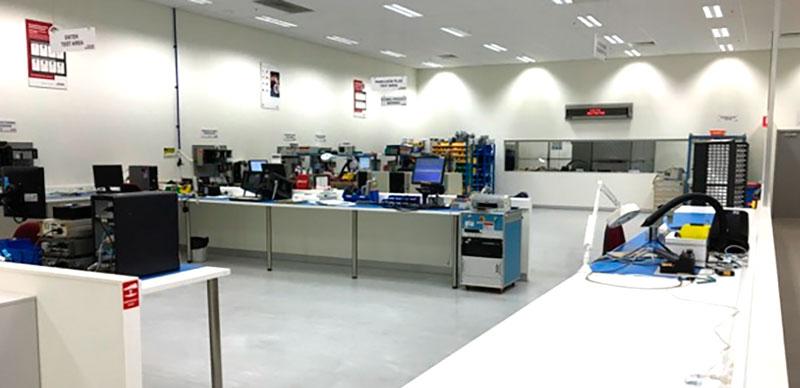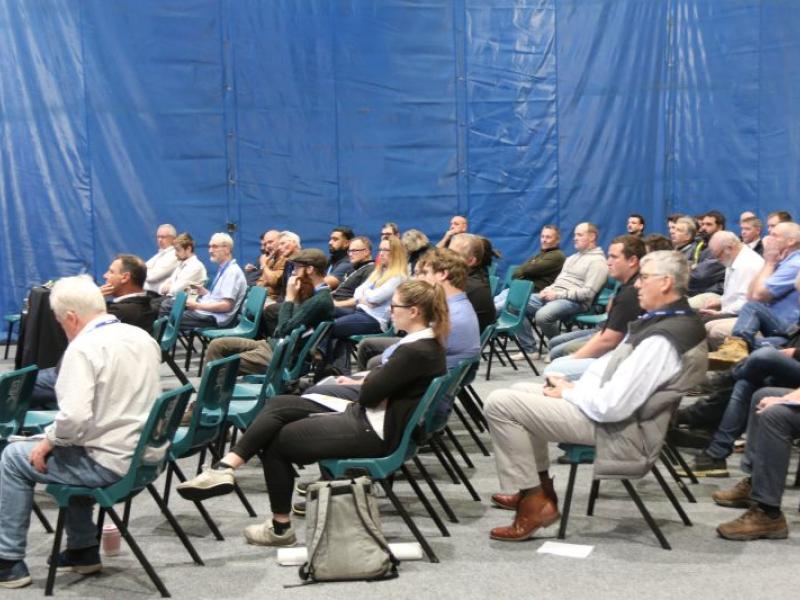In an increasingly ‘throw away’ society, remanufacturing is often overlooked as the ‘next best’ option to buying new. Although, what if a remanufactured product was just as good if not better than new for a reduced price while also delivering a multitude of environmental and societal benefits?
According to Tarang Shah, operations manager, Customer Support and Maintenance at Rockwell Automation, “Remanufacturing is an option that is well worth exploring, especially when it comes to investments in industrial automation. An important distinction to be made is the distinction between ‘repair’ and ‘remanufacture’- the end result is that a remanufactured product is restored to ‘like new’ or better with warranty on the entire unit, not just the part repaired.”
Reductions in maintenance staff and spare parts inventory often lead to longer downtime and lost revenue when automation assets malfunction or fail. Just fixing the problem that caused the equipment malfunction is not always enough to guarantee its proper operation.
To help customers improve productivity and reduce downtime, Rockwell Automation has invested in a proprietary remanufacturing and testing process to extend equipment life. The remanufacturing process restores failed units to ‘like new’ condition, extending the life of equipment and enhancing its performance.
“This is achieved by installing all applicable software and hardware updates and enhancements, replacement of failed or aged components, parametric testing and cleaning and cosmetic restoration,” said Shah.
Mitigating risk
The pace and demands of production today are relentless. System outages cost on average between 110,000 dollars to 150,000 dollars per hour and 20 billion dollars to the process industries per year. “Remanufacturing provides an attractive value proposition to end-users wanting to mitigate risk associated with downtime,” Shah explained.
The state-of-the-art Rockwell Automation Remanufacturing facility in Bayswater, Victoria has all the latest testing technologies and technicians with more than 84 years combined experience. “At any one time, we have AUD2.5 million worth of stock across most product lines available for exchange to help minimise downtime,” said Shah.
Remanufactured products use only genuine components and also include the latest software and firmware updates. This is particularly important in the current industrial environment where rigorous production demands and the pace of change intensify the pressures on people and equipment. The higher the capacity you’re working at, the faster the costs of downtime rise so mitigating risks becomes a key consideration.
The remanufacturing process
The Rockwell Automation seven step remanufacturing process ensures compatibility and extends the life of equipment. The first step in the process is verification of the unit catalogue number, series and revision data for the warranty.
Step two is the revisions and enhancements process where the unit is cleaned and updated to current applicable hardware and copyrighted firmware revisions. It is replaced or enhanced with the latest proprietary release and updated to original equipment manufacturer specifications. Each component is then reviewed and inspected and any damaged or outdated components are rebuilt or replaced using the latest computer and fibre optic technology.
Dynamic functional testing is conducted to original equipment manufacturer’s specifications under various loads and operation parameters. The unit then undergoes environmental testing using fully computerized simulation platforms to identify any intermittent problems not readily apparent, preventing premature failures. Final quality inspection is conducted for complete compliance to Rockwell Automation standards and the product is then ready for secure shipping. Each remanufactured part receives a 12-month warranty on the entire unit, not just the replaced components.
Total lifecycle support
Manufacturing plants are facing the constant challenge to reduce operating costs associated with managing spare parts while mitigating risks associated with downtime. A Parts Management Agreement (PMA) from Rockwell Automation helps address this by providing
quick access to spare parts while reducing the internal operating costs associated with maintaining an independent spare parts inventory.
Through the PMA, Rockwell Automation owns and manages the spare parts inventory for a fixed cost, providing an attractive alternative to purchasing spare parts. Any spare parts consumed are replenished within 48 hours and the cost is covered as part of the fixed price agreement. It provides the availability of parts that match the install base 24 hours a day, seven days a week so when a part is required, it is there ready to go.
“These agreements are backed by our remanufacturing and renewal parts services to replenish any inventory used. They also support equipment with limited lifecycle as spares can leave with decommissioned equipment and warranties on new parts are only initiated upon installation, reducing expenses associated with carrying inventory,” Shah explained.
Sustainable productivity
In addition to the business benefits of mitigating risk, remanufacturing also reduces impact on the environment; in fact, it has been referred to as the ‘ultimate form of recycling’ providing many benefits including reduced raw material and energy consumption and reduced landfill.
“To make remanufacturing an easily accessible option, we have positioned ‘repair bins’ at some customer sites. Products requiring repair are placed in the bin, collected by distributors and brought to the centre for remanufacturing,” said Shah.
As a company, Rockwell Automation supports efforts to operate more efficient and responsible businesses. From helping customers design, operate and maintain safe and secure operating environments; meet regulatory compliance requirements; reduce waste and emissions; and to ultimately, protecting their reputations as suppliers of quality products and good stewards of the environment.






